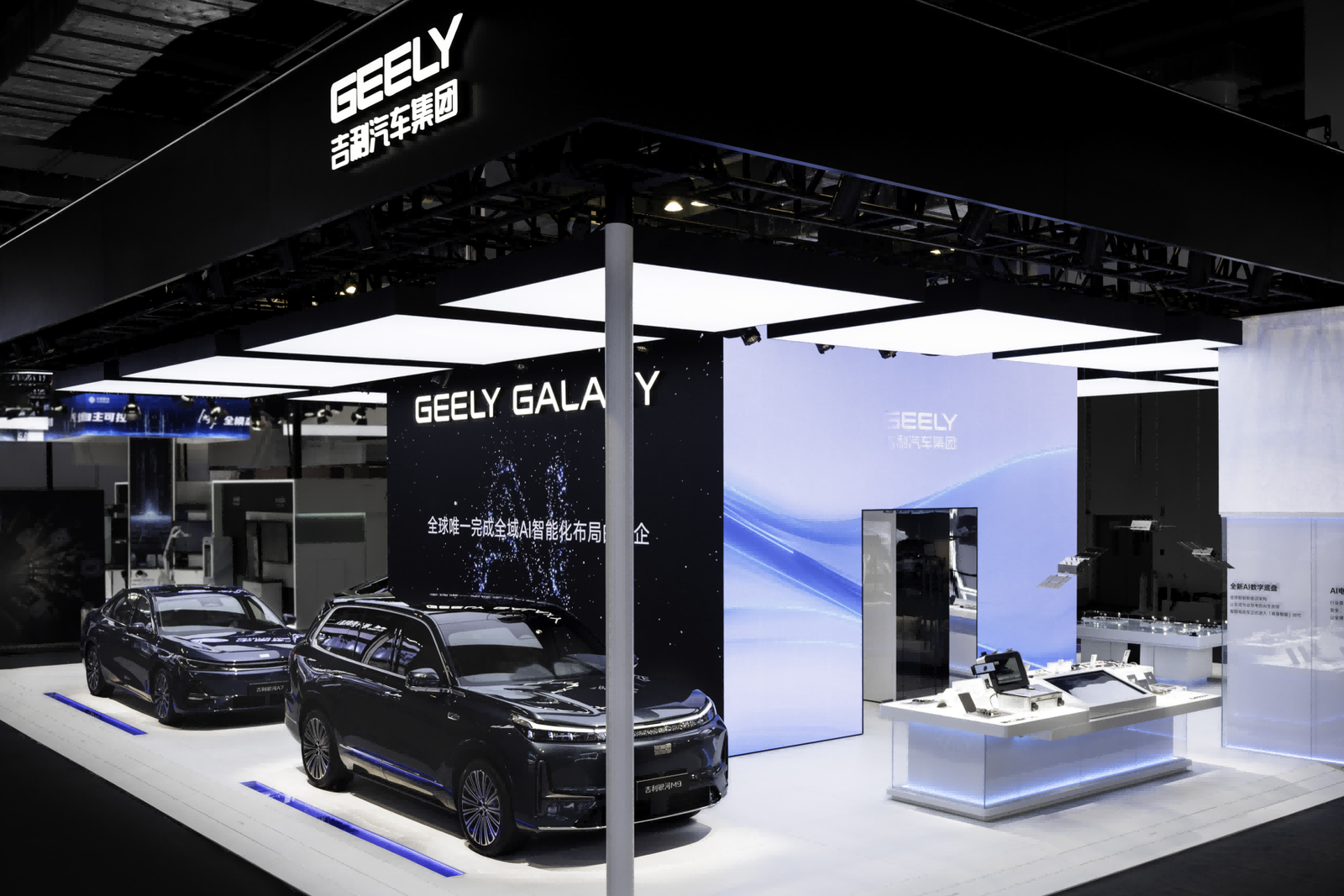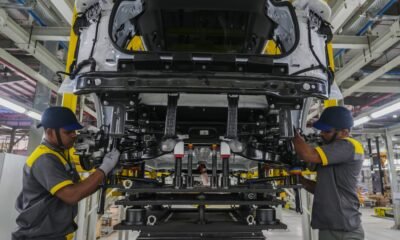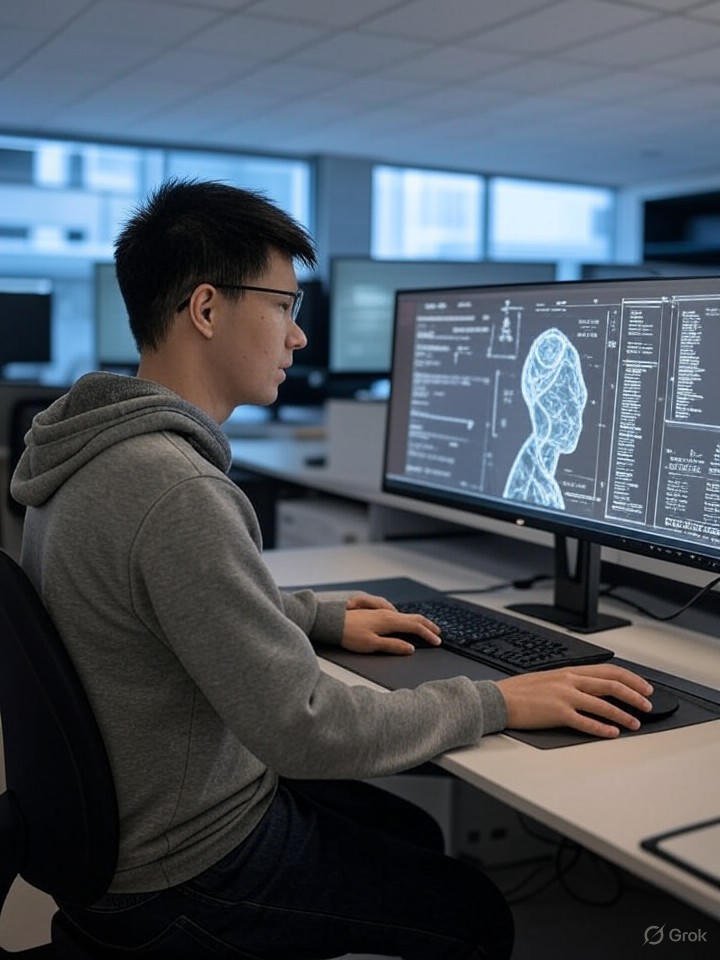Hangzhou, China, July 30, 2025 (GLOBE NEWSWIRE) — On July 26, Geely Auto Group partnered with its strategic tech ecosystem partner, StepFun, to jointly exhibit at the 2025 World Artificial Intelligence Conference (WAIC 2025). Geely showcased a suite of new products, including the Zeekr 9X, LYNK & CO 10 EM-P, Geely Galaxy A7, and Geely Galaxy M9. Also on display were the fruits of Geely’s “Full-Domain AI” technology system, such as the Qianli Haohan intelligent driver-assistance system, the Geely Future Mobility Constellation, and AI-powered wearable devices. Highlighting the showcase was the Geely Galaxy M9, featuring the industry’s first Human-like AI agent for Vehicles. This agent leverages StepFun’s end-to-end AI voice large model, marking a significant revolution in human-machine interaction. Furthermore, Geely’s Zeekr 009, serving as the official vehicle partner for this year’s WAIC, garnered widespread acclaim and enthusiastic praise from conference attendees.
During the event, StepFun revealed its latest foundational large model, Step 3. Additionally, together with Qianli Technology and Geely Auto Group, StepFun launched the next-generation smart cockpit Agent OS (Preview Version). Tailored for AI Agent-native applications, this innovation promises users a cockpit interaction experience that feels more natural, human-like, and emotionally engaging.
Partnering with StepFun to Revolutionize Intelligent Interaction Experiences, Geely Galaxy M9 Debuted the world’s first Human-like AI agent for Vehicles
StepFun is a strategic tech ecosystem partner of Geely Auto Group and one of its five AI ecosystem partners. Together, they have achieved a series of breakthroughs in multimodal large models, intelligent driving, and cockpit technologies.
Back in February, StepFun and Geely Auto Group jointly announced the open-sourcing of two co-developed Step series multimodal large models for global developers. Now, the Geely Galaxy M9, Geely’s all-new “AI Tech Grand Six-Seater Flagship SUV,” has globally debuted an Human-like AI agent for Vehicles. This agent is equipped with StepFun’s “end-to-end AI voice large model,” enabling groundbreaking, ultra-natural emotional voice interactions. Powered by human-like emotional computing, it delivers more natural voice performance and speech segmentation. Its conversational emotions and spoken style are richer, and it can dynamically adjust its tone and manner based on the user’s emotional state and semantic intent. It can also provide proactive care and companionship.
During the WAIC 2025, Qianli Technology partnered with StepFun and Geely Auto Group to jointly launch the next-generation intelligent cockpit operating system, Agent OS (Preview Version), specifically designed for native AI Agent applications. Powered by StepFun’s industry-leading multimodal large models and end-to-end voice large models, it features key capabilities such as multimodal fusion for ultra-natural interaction, integrated cloud-edge memory, human-machine co-piloting based on fully integrated maps, and a third living space. This promises users a more natural, human-like, and emotionally engaging cockpit interaction experience.

Furthermore, just before the opening of the 2025 WAIC, StepFun also unveiled its latest foundational large model, Step 3. Based on Step 3, StepFun and Geely are set to deepen their partnership, jointly propelling a comprehensive upgrade in automotive intelligence experiences.
The World’s Only Automaker with Full-domain AI Coverage, Geely is Leading the Development of Cars Towards Embodied Intelligence
The era of embodied intelligence is dawning swiftly, driven by the rapid advancement of AI technology. Leveraging a robust technological foundation and an intelligent ecosystem, Geely is leading the development of cars towards embodied intelligence. Looking ahead, it even aspires to become the world’s largest robotics company.

Geely entered the AI field early and has achieved rapid development. As early as 2021, the company unveiled its “Intelligent Geely 2025” strategy, aiming to build an “intelligent technology ecosystem network” by leveraging cutting-edge infrastructure like high computing power, big data, large models, and satellite constellations, thereby establishing a solid technological foundation. Building on this, in January 2025, Geely officially launched the industry’s first “Full-domain AI for Intelligent Vehicles” technology system. This system not only widely applies AI across the entire vehicle domain including architecture, powertrain, chassis, and cockpit, but also integrates it deeply into the full value chain, encompassing product R&D, manufacturing, and after-sales service. This milestone positions Geely as the only automaker globally to have completed this comprehensive “Full-domain AI” layout.
As competition in the automotive industry shifts from “breakthroughs in single technologies” to “ecosystem synergy and efficiency,” Geely is collaborating with technological ecosystem partners like StepFun and Qianli Technology to create a benchmark for “AI + Car” technological cooperation. They are engaging in comprehensive collaboration in areas such as model optimization, product definition, and software and hardware development, building a full-chain, all-encompassing collaborative innovation system.
Computing power, algorithms, and data are the “three core engines” of AI, and Geely has achieved comprehensive leadership in all these areas. In terms of computing power, Geely, together with its technological ecosystem partners like StepFun, Qianli Technology, DreamSmart, and Geespace, has established the world’s only “Intelligent Vehicle Compute Alliance”—the Xingrui Intelligent Data Center 2.0. With a combined computing power of 23.5 EFLOPS, it firmly holds the top spot among Chinese automakers. On the algorithm front, Geely’s Xingrui AI large model system has achieved deep integration with multimodal large models like StepFun’s. In terms of data, Geely has accumulated 10 trillion tokenized data points and 40 billion pieces of vertical automotive data, providing the core “fuel” for large model training and significantly raising the upper limit of their “cognitive capabilities.”

Powered by the strong impetus from these three core AI engines, Geely has harnessed AI technologies like end-to-end learning, VLA (Vehicle Learning Architecture), and world models to launch the Qianli Haohan intelligent driver-assistance system. This system delivers a fully-scenario-safe intelligent mobility experience to users. According to CHEN Qi, Chief Scientist of Autonomous Driving at Geely Holding Group and Vice President of Zeekr Technology Group, in the fourth quarter of this year, Qianli Haohan will implement a brand-new L3-oriented technical architecture, a cloud-based WM+ foundational large model, and an in-vehicle VLA+ end-to-end adversarial safety model. These advancements will enable AI to train AI and AI to verify AI.
Currently, Geely has become the automaker with the widest adoption of AI agents integrated into vehicles and the pioneer automaker in AI-powered vehicle manufacturing. The technological achievements of Geely’s all-domain AI technologies, such as the Qianli Haohan intelligent driver-assistance system in the driving domain, the Thunderbolt AI Hybrid 2.0 in the powertrain domain, the AI Digital Chassis in the chassis domain, and the AI Intelligent Architecture in the platform domain, are all in mass production. These innovations deliver an unprecedented intelligent and safe mobility experience to users.
LI Chuanhai, Vice President of Geely Auto Group and Director of the Geely Automotive Research Institute, stated, “Geely entered the AI field early, developed rapidly. Our AI technologies have been widely applied and undergone significant transformation. We are not only the fastest company to transition traditional cars towards embodied intelligence but are also committed to guiding AI to become a powerful tool for human progress. In the next phase, Geely will build a technical architecture focused on ‘interaction faster + thinking deeper,’ evolving AI from a mere execution tool into an intelligent assistant capable of handling complex tasks. At that point, every Geely vehicle will become a physical connection point, helping users tap into the vast AI universe. Geely also aspires to transform from an automaker into China’s, and potentially the world’s, largest robotics company.”










































